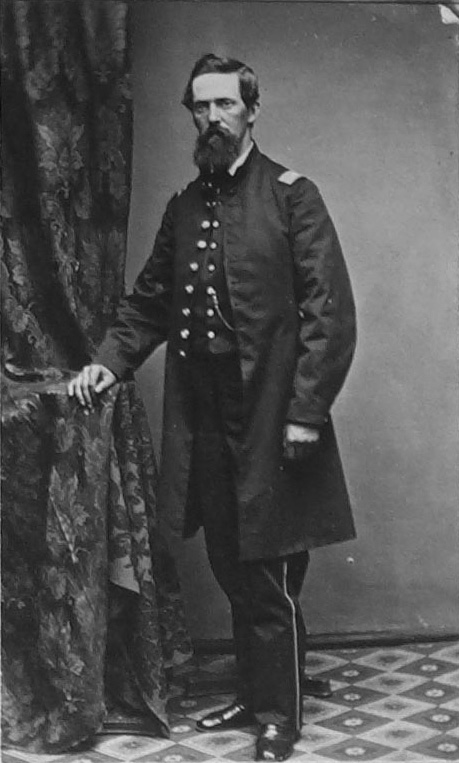|
Captain ELIJAH W. GIBBONS |
||
|
Captain ELIJAH W. GIBBONS, was born in New York City, Nov. 29, 1831, but resided in Middletown, Conn., nearly all his life, until his enlistment. His occupation was that of a cabinet maker and painter. At the age of nineteen years lie united with the Baptist church in Middletown, of which he ever remained an active and consistent member. He was a very earnest worker in the Sabbath School and at prayer meetings, and was accustomed to accompany his pastor on his mission work to out-lying rural districts. The first call for troops found him ready, and enlisting, May 22, 1861, in the 4th Connecticut, which afterwards became the 1st Connecticut Heavy Artillery, he was elected 1st Lieutenant of Company G. He held this position till May 6, 1862, when he resigned and returned to Middletown, his regiment having, up to that time, had little but garrison duty. He had scarce resumed his old avocation when a new call for troops aroused his desire to do something more for the good cause, and he speedily enlisted a full company of the very best material that Middletown ever gave to the country, of which he was unanimously chosen captain—and a most faithful officer he proved. His previous experience had taught him what men needed, and his company was always well cared for. A personal pride in dear old “B” Company doubtless affects my judgment, but I think no survivor of the regiment but will agree with me that no company in the regiment, all things considered, ever looked or did much better. And this was owing to one man more than any other, and that man was Elijah W. Gibbons. He showed what could be done with and what should be done for men, and officers and men should alike bless his memory. From the time the regiment left Hartford until his mortal wound, he was never absent from his company a day. He led them gallantly at Antietam, where, by a quick flank movement of his company, he enabled the regiment to capture a large posse of rebels in the famous Roulette house. At Fredericksburg he was advancing courageously with the regiment, when a rebel ball shattered his thigh, and he fell. He was picked up by the men who loved him so dearly, and conveyed to the Falmouth side of the river, where he lingered in great suffering but sweet resignation for six days—until the 19th of December—when he died. His body was interred with military honors by his regiment, but subsequently was removed to Middletown, where funeral services were held from the Baptist church of which he was a member, January 3, 1863. Capt. Gibbons’ death was a great blow to his family, who idolized him, and to a large circle at home, but his company and his fellow officers missed his influence and example sadly, and at our regimental re-unions, years after his death, we somehow feel as if we needed him with us. But if he cannot come to us let us trust that it may be our fate to meet with him at that greatest of all re-unions, in the sphere “Where all is made right that so puzzles us here.” |
||
